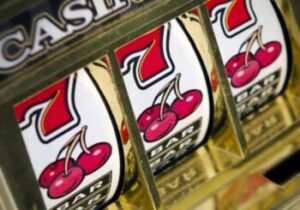August 30, 1904 – Perhaps the main staple of the Olympics from ancient Greece carried over to today’s games in the marathon race. Thomas Hicks won the third marathon run in the modern Olympics with a time of 3:28:53.0 as part of the World’s Fair Exposition in St Louis, MO.
Hicks originally born in England moved to the States in his younger years to gain American citizenship His victory of Gold at this Olympic endurance race was not without controversy. At first take it appeared that Hicks came in a distant second place to Fred Lorz. It was later found that Lorz ran the first nine miles and then poor weather and surface conditions forced him to get into a car of a supporter.
Lorz was found to later have rejoined the race with about five miles remaining and crossed the finish before any other competitors. He was soon stripped of the victory and it was then awarded to our man Hicks.
By today’s standards Hicks would have been disqualified for doping as it is said he was given a couple of doses of strychnine. The chemical gives a boost of endurance to athletes and in the modern era it is a banned substance for most athletic competitions including the Olympic games.
To find more great daily sports history make sure to check out the Sports Jersey Dispatch and Pigskin Dispatch.

More From Sports History Network

1973 Atlanta Falcons – Best Season In First Decade Of Existence
The Atlanta Falcons joined the NFL as an expansion team in 1966. Like most

Fanatics Raises the Bar for Sportsbooks with New Prediction Platform
The sports betting industry, which has taken the world by storm over the past

Top 6 Types of Wild Symbols In Online Slots
Wild symbols are a standard feature in many online Slots. They act as substitutes

Cheltenham Comebacks and Shock Wins: The Moments Nobody Expected
Cheltenham has a way of pulling stories out of horses that you don’t see

How Prepaid Access Shaped Casual Sports Gaming
Before apps auto saved cards and one tap wallets became standard, casual fans who

How the World of Sports Learned to Completely Accept the Betting Industry
Professional sports leagues once treated gambling like a contagious disease. Team owners banned players

Horse Racing, High School Rivalries & Lesser-Known Missouri Sports Stories
Missouri’s sports timeline is a layered scrapbook: dusty 19th-century racetracks, high school rivalries that

Predicting the Match Outcomes of the Most Historic Clubs in English Soccer System
The English Football League is the oldest league system dating way back to 1888.